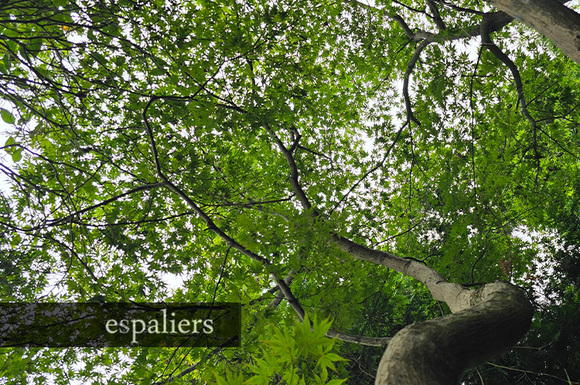What defines an asymmetrical parasol tree?
An asymmetrical parasol tree features a sculptural, natural form designed to filter sunlight without a central trunk obstructing your terrace. It provides ambient shade while allowing winter light to flow freely.
What are the advantages compared to a conventional parasol?
This living solution offers natural cooling, aesthetic enrichment of your outdoor space, and eliminates concerns such as wind sensitivity or storage limitations. The tree matures alongside your garden, becoming increasingly striking over time.
Can the tree’s design be customized?
Absolutely. Espaliers offers both precisely shaped parasol forms and more expressive, asymmetrical trees with distinct trunk structures. Aside from standardized formats, each tree is individually unique. Selection is tailored to your project.
How much space does it require?
Because the trunk is integrated into the planted area adjacent to the terrace, the layout remains highly flexible—even compact gardens can accommodate these trees without compromise.
What is the optimal planting period?
The tree’s dormant period (October to April) is ideal. During this time, it can root calmly and receives sufficient natural watering. Since this is a summer product, we also offer these trees in containers or Japanese root balls, allowing for summer planting.
How much shade does it offer?
A mature parasol tree can lower terrace temperatures by 5°C to 7°C. Its asymmetrical canopy casts shade precisely where needed. Indoors, it contributes to reduced heat gain—acting as a natural air conditioner, surpassing artificial alternatives.
Is pruning necessary?
Yes, but in moderation. Espaliers guides the tree’s development to preserve its character. Pruning is typically done in winter or early summer. The aim is to keep the tree’s dimensions manageable while continuing to highlight its artistic value
Is ongoing maintenance demanding?
Not at all. The first year requires regular watering during dry spells. Afterwards, occasional thinning suffices. Espaliers provides care guidelines and offers continued support through its follow-up service.

